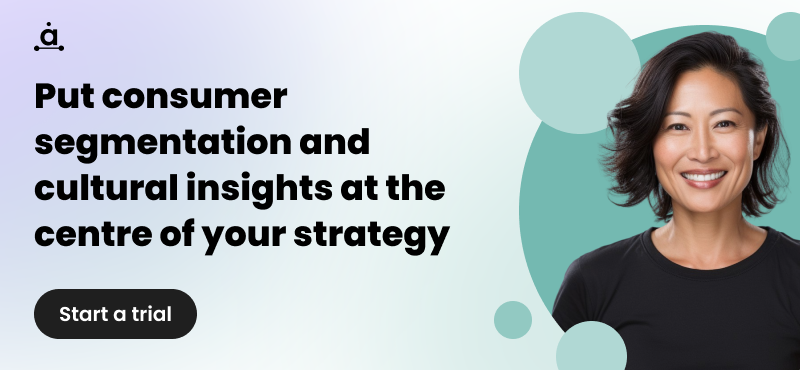Agencies & consultancies: 6 views on the present and future of creativity
The recent movements of Accenture betting on its expansion in the creative field - in addition to other consultancies of the calibre of Deloitte and PricewaterhouseCoopers - are reshaping the advertising sector. The consultancies are “everywhere you go” such as in the edition of Cannes Lions that has just started, Erik Oster commented the other day, in this article on adweek. The journalist said that “the tired agencies-versus-consultancies narrative is dead”, to which he added a quote from Mark Singer, principal at Deloitte Digital: “I don’t think it’s a ‘versus’; I think it’s an ‘and'”. Hence our headline ...
While consultancies increasingly gain ground in the field of marketing by "pushing" agencies to change their business model, brands no longer only want unique tactics to execute, but solutions that drive digital transformations and support their long-term goals.
The concept of technocreativity, which is not new, has begun to make good advertising sense. “Technocreativity allows us to think creatively in a way that is more holistic – it provides us with the opportunity to amplify an idea through technology, and also leave the comfort zone of the exact brief, the client’s ‘needs’, the structured hierarchy of a traditional corporation”, states Alejandro Di Trolio, creative director at Good Rebels, in this excellent article.
Opportunity for consultancies
On the other hand, the complexity of the full-service agency model creates its own problems, in the opinion of Philip Lynch, managing director of Newton Insight and previously head of media evaluation at WPP's Kantar. "Agency structures and their matrix offers are now horribly confusing. There is an opportunity for the consultancies to build their marketing services capability in a more rational and transparent way, which takes into account what their clients need now and are likely to need in the future”, according to Lynch.
Agencies have to carve out new USPs
For many, the traditional agency model is broken. Thomas Hirschmann, digital insights expert, CEO & founder of Braingraph, thinks that “it has been broken for a while”. “Agencies have tried to move more into the area of data, technology, and - in part - strategy. And consultancies have been trying to expand into these areas as well, especially given that they had already been successfully operating in the strategy space,” he comments. In his view, classic consultancies will have an advantage when trying to take over marketing agency scope "because of their better understanding of the commercial realities and needs of clients," among other things.
“This leaves marketing agencies in a difficult situation where they have to carve out new USPs and position themselves in a smarter way to convince clients of the actual value they bring to the table. In my humble opinion this can only be about deeper understanding of human behaviour and hence the capacity to help clients truly connect with their target audience,” says Hirschmann.
Both sides must be prepared to change
The coming together of consultancies and agencies can challenge legacy approaches on both sides and arguably leads to better innovative thinking, highlights Philip Lynch. “The proviso is that both sides must be prepared to change”. For Lynch, to be a true strategic partner, agencies need to be present at the birth of their clients’ objectives.
“The accepted view of consultancies and agencies is they are polar opposites but both types of organisation rely on a layer of experienced, smart people who can find meaning in large volumes of information. They both specialise in deep thinking. Consultancies and agencies are retained to make sense of the world in ways their clients can act upon. The difference between the two is their positioning. Consultancy firms have more influential access to key decision makers. Consultancies decide why marketing needs to happen and the agencies decide how”, according to the MD at Newton Insight.
Brands demand demonstrable results
The market demands a change of position on the part of the agencies, which go from giving the reason to everything that the clients say to playing a more strategic role, more in the long term. But how does that change of attitude occur in practice? How are the agencies facing this new paradigm?
"The confusion between strategy and tactics and its implementation in agencies, especially media, has always sought an immediate and short-term return, replicating traditional actions (and budgets) so that all involved feel comfortable and understand the outcome of a campaign. Hence the failed results or even the lack of concern for the digital environment", highlights Inma Ferragud, consultant in communication, strategy and digital content. For her, that is beginning to change for several reasons: ads that do not impact the audience because of algorithms and ad blockers, in addition to paid content that is not credible if it is not part of a strategy. "And most importantly, brands no longer believe in results that they could not translate or demonstrate before," says Ferragud.
However, there are more and more professionals in companies to measure, analyze and design a strategy. For the consultant, some professionals are still reluctant to take on many of the mistakes made. "The agencies have realized that magic formulas are not the panacea in online".
Technology as one more in the creative process
Ogilvy’s data analyst Carlos Romero believes that the problem of advertising was that it focuses on using media that have not had a great innovation for more than 50 years, and that the Internet came later, and it was a challenge to change the formula that had been in place for years.
"For technology to be able to merge with creativity, it must be clear that it will not only be used as a resource to convey the message. Technology has to be a level above in the creative process. The agencies now work hand in hand with large technology companies to obtain insights and suppliers of this information, helping in the streamlining of consumer research and to have an accurate view of what is functional," according to the analyst.
Technological partners for a 360º consumer view
This more strategic role of the agencies demanded by brands is supported in partnerships with technology companies, something that consultants have been doing for some time. The founder and director of the audience intelligence consultancy EntSight, Edward Bass, states that "far too many agencies try to use research and data to post rationalise their creative or strategic ideas, but that’s a rather foolish and illogical way to approach a problem!”
“In our case we operate as an arbitrary and independent partner with analyst and strategist expertise in key verticals such as Fashion, Entertainment and Finance. We have no role in activation and are only focused on providing the most vital strategic insights for our clients (both agency and brand). In terms of technology - planning needs to be done with regard to the types of datasets you need and why, something which EntSight was doing prior to signing up with Audiense - which is why the platform now has such a well placed and effective role in our work”, explains Edward Bass.
Philip Lynch, of Newton Insight, adds: “Data on its own doesn't always sell itself. There needs to be a story. Data is a key asset of consultancy firms. How data is interpreted and brought to life is a key skill of agencies. Feeding off each other could deliver something better, with the left brain and right brain working together”.
What about you? Do you still believe in the vision agencies-versus-consultants or do you think that both should go hand in hand? Tell us your experience in the comments below and we’ll keep the discussion going. If you would like to learn how we could be a tech partner, book a demo now.
Photo by Hello I'm Nik on Unsplash.







